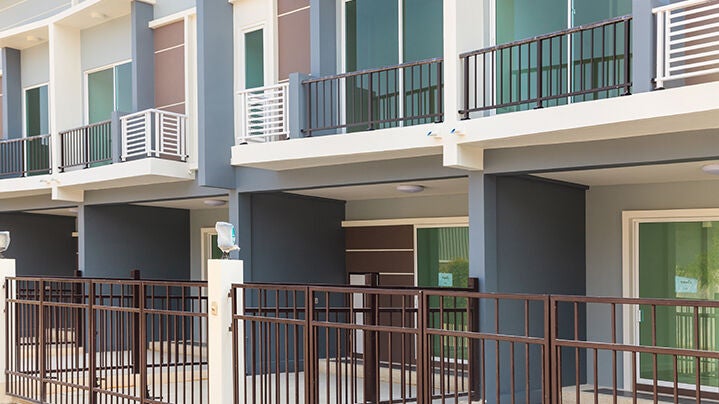Canterbury -
Investment Update December 23
Those in Canterbury’s residential investment property sector are feeling optimistic at the moment – influenced by two substantial events taking place in this sector of the property economy.

Those in Canterbury’s residential investment property sector are feeling optimistic at the moment – influenced by two substantial events taking place in this sector of the property economy.
Firstly, the outcome of the election – which has seen a much more ‘landlord-friendly’ Government take office. Headlining this new era will see the current coalition peeling back mortgage tax deductibility for landlords to previous levels.
The restoration of interest deductibility will see:
- 60 percent interest deductibility kept from April 2024 – rather than being reduced to 25 percent in line under the former Government’s timeline
- 80 percent interest deductibility available from April 2025
- 100 percent interest deductibility reintroduced from April 2026.
Furthermore, National’s readjustment of taxation in the residential investment properties will see the bright-line ownership/sale timeline test returned to two-years – down from the current 10 years – restoring the bright-line test to what it was when introduced by National in 2015.
It also looks like the end of automatic rolling over of fixed-term tenancies – which will allow for greater flexibility of property management for dwelling owners, particularly those with accommodation in holiday destinations where owners wish to spend time over the summer period enjoying their property. Landlords will be able to terminate tenancies using the periodic tenancy rules and other grounds for eviction with the reintroduction of ‘no cause’ notifications.
Interestingly, latest market commentary from independent property economist Tony Alexander notes three key points which have emerged in the residential investment property sector post-election:
- Investors are becoming more obvious in the residential real estate market
- Very few buyers are now worried that prices will fall after making a purchase
- The FOOP (fear of over-paying) psyche has reached a record low and • The market is strengthening but there are no solid signs of a frenzy.
“There is a firm level of interest in property buying. But again, the key conclusion from figures is that there is no frenzy – just a firm upturn,” he points out.
“Fear of missing out (FOMO) is back, but it is not booming - and that perhaps is understandable when we consider the level of mortgage interest rates and the recent small price increases.
“The clearest strengthening result in the November survey is the further rise in the proportion of real estate agents reporting that there are more investors in the market. This reading has risen to 26 percent in November up from 14 percent in October. This is now the area of the residential real estate market which is undergoing change.”
Aside from election influences, Tony Alexander’s Investor Insight report highlights five key points in feedback from survey respondents, all of which will give renewed confidence to those in the residential property investment sector:
- For the fourth month in a row, landlords have reported that it is getting increasingly easy to secure good tenants.
- There has been a decline in the proportion of investors looking to make a property purchase who will buy new, and a lift in those who will buy an existing dwelling
- The immediate post-election surge in the number of investors looking to sell in order to buy another property has faded away.
- Intentions to sell because of the 2021 tax changes, however, have remained low for the second month in a row
- On average landlords are aiming to raise their rents by six percent in the coming year.
Secondly, the other major undercurrent positively impacting the residential investor property market is migration – with incoming worker/resident numbers reaching ever higher volumes. Improved migration is a cornerstone for sustaining profitability in the residential investment property market.
Figures from Statistics New Zealand show the net number of immigrants for the 12-months in the year ending September sat at 119,000 – beating the previous 12-month high of 110,000 set just a month earlier, which in turn cracked what was the previous high of 103,000 established in July. The greatest number of immigrants came from India, followed by the Philippines, and China. This is an approximate 2.3 percent boost to New Zealand’s population and these people require homes. ASB’s most recent economic and property report notes: “Net migration figures continue to surprise, with considerable upward revisions. We expect the current pace of gains to moderate before long, but net migration is likely to remain stronger than during the pandemic and the risk is that inflows remain resilient for a prolonged period.
“The bow wave of population growth NZ has already seen has been one of the factors supporting the house price recovery thus far,” added the ASB report.
The Residential Investment team at Bayleys Canterbury wishes everyone a happy and joyful festive break. If your investment options change over the holiday period and property features higher on your list, please do get in touch – we’d love to talk through the opportunities.